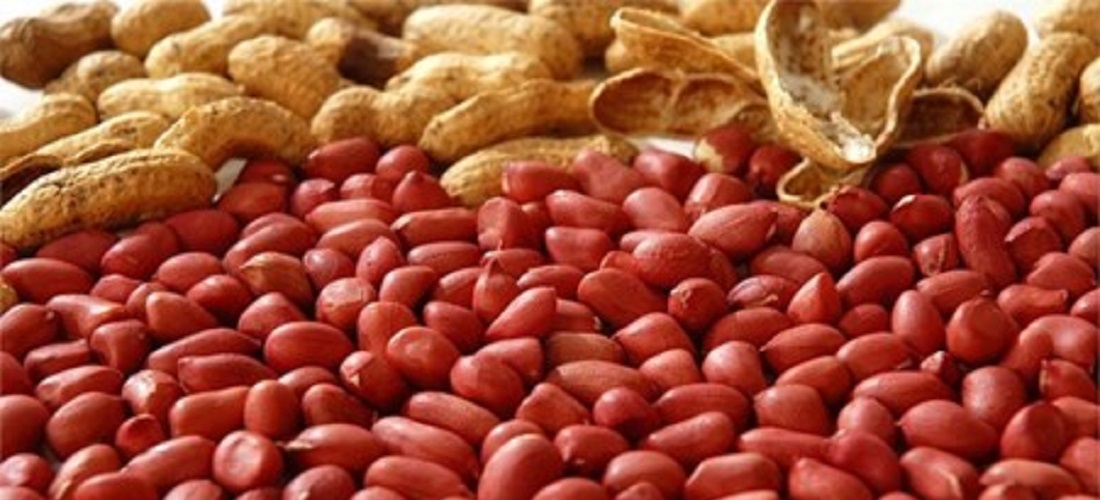
Peanut oil drives Cras Brasil growth
Dec, 23, 2022 Posted by Gabriel MalheirosWeek 202251
Considered a “luxury item” in Brazil, peanut oil is Cras Brasil’s main bet to maintain its strong pace of growth in the coming years. The company, one of the country’s leading processors of the product, and companies such as the Louis Dreyfus Company, saw its revenue jump from BRL 29 million in 2017 to BRL 532 million last year thanks to peanut oil.
In 2022, the company, which also sells certified wood, anticipates revenue of BRL 480 million – the decrease is due to exchange rate fluctuations because the business is based on exports -with peanut oil accounting for BRL 300 million, with sales of 32 thousand tonnes in the foreign market. The total expected for 2023 is BRL 600 million, with shipments of 41 thousand tonnes of oil accounting for BRL 440 million.
See below the total volume of peanut oil (hs code 1508) exported from Brazil month-on-month from Jan 2019 to Oct 22, according to the DataLiner market intelligence service.
Brazil peanut oil exports | Jan 2019 – Oct 2022 | WTMT
Source: DataLiner (click here to request a demo)
“At first, we faced serious difficulties due to limited resources. I went to get a capital injection after researching where to climb financially. Two partners purchased a portion of the company at the end of 2015. It was then that we shifted our focus, leaving outsourcing behind and acquiring the first factory,” says Cras Brasil CEO Rodrigo Chitarelli, who now owns 29% of the company – Treasury Stock has 20%, and KRC Investments has 51%.
Cras invested R$ 9 million in a unit based in Itaju, deep into Sao Paulo state, with the participation of partners and the injection of resources. Another R$10 million was spent on machine and process improvements. In Itaju, the company purchases peanuts from small and large producers and processes and stores the grain.
According to Chitarelli, the idea to invest in peanut oil arose to serve a niche in the vegetable oil market, which has guaranteed demand in countries such as Italy, the United States, and, above all, China, which accounted for around 90% of oil purchases from Cras peanuts this year.
“The restriction measures against covid-19 in China ended up favoring the increase in peanut oil consumption. This contributed to an increase in prices, which hit US$ 2,150 a tonne, against an average of US$ 1,900,” emphasizes Chitarelli. “The war in Ukraine also favored the demand for the peanut by-product, since the country is the world’s largest producer of sunflower oil.”
The executive stressed that peanut oil is the most “premium” vegetable oil in the market. “It’s the most expensive, followed by sunflower oil. I chose a particular product with high nutritional value that is also environmentally friendly, as we do not use any chemicals in the oil extraction process and reuse the peanut meal to make animal feed,” Chitarelli emphasized.
In the long term, the CEO of Cras Brasil says he has plans to encourage the consumption of peanut oil in Brazil and is already targeting a niche to enter with his product – which is still uncompetitive when compared to the popular soy oil, which costs in the range of R$ 9, a pack of 900 ml, against R$ 90 a liter of peanut oil.
Source: Valor Econômico
To read the full original article, please visit: https://valor.globo.com/agronegocios/noticia/2022/12/23/oleo-de-amendoim-move-o-crescimento-da-cras-brasil.ghtml
-
Meat
Mar, 11, 2024
0
Pork export volume shows 24.4% uptick in February, says ABPA
-
Shipping
Aug, 19, 2019
0
Government plans cabotage provisional measure
-
DW 2019 EN
Aug, 05, 2019
0
DatamarWeek 06 August 2019
-
Shipping
Jun, 04, 2021
0
International experts arrive in Sri Lanka to deal with possible oil spill

